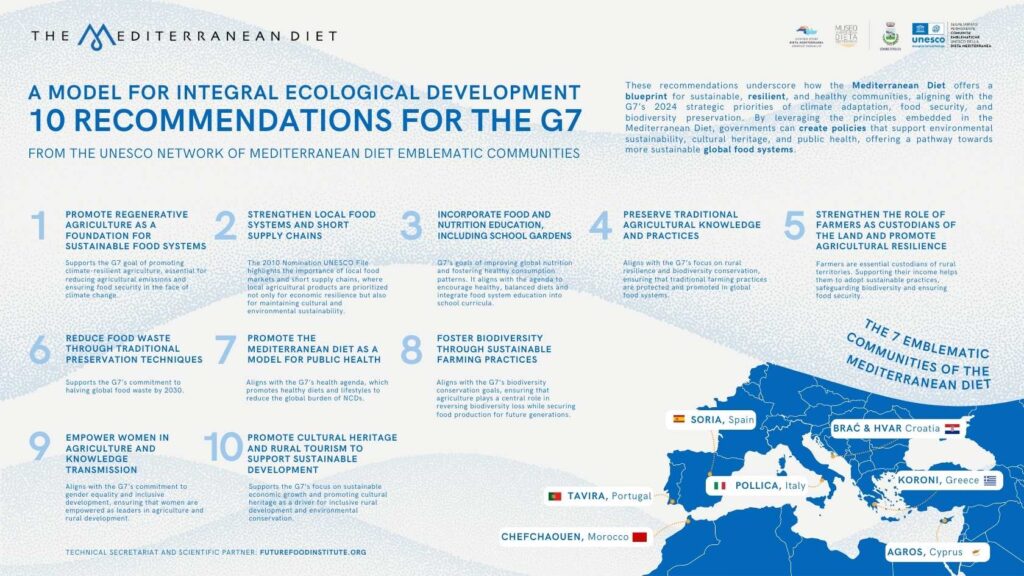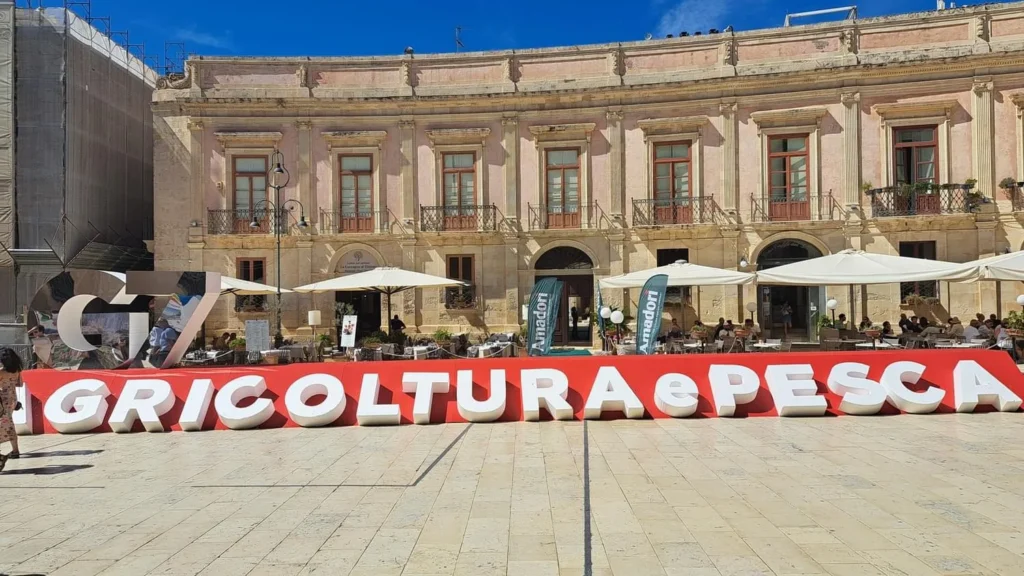A Development Model for a Sustainable Future
As the Climate Week unfolds in New York, Italy is experiencing renewed enthusiasm and commitment in the agri-food sector. The ongoing G7 Agriculture meeting in Syracuse has witnessed unprecedented participation from all Italian agri-food stakeholders, focusing on young people in agriculture and the African continent. This “Mediterranean” G7 seems intent on strengthening the bridge between the millennia-old history of our food culture and the continent that represents the future: Africa.
The Mediterranean Diet, a UNESCO Intangible Heritage, has played a central role in this context, not just as a celebration of iconic products but as a genuine model of sustainable development. The Mediterranean Garden of Italy by DMED, curated by the Edamus Consortium and the Food Districts, offered a space for encounters and dialogue for delegations and media worldwide. At the same time, the UNESCO Emblematic Communities of the Mediterranean Diet developed ten strategic recommendations for G7 leaders.
The Mediterranean Diet, often misinterpreted, is not simply a brand to promote or a product to sell. It is a living heritage that manifests daily in gestures, choices, and traditions passed down through generations. It has proven to be the healthiest and most sustainable lifestyle, agricultural production, and consumption model globally. The UNESCO Emblematic Communities not only preserve this heritage but live and safeguard it, interpreting it in everyday life and using it as a guide in creating rural development policies, urban plans, and common rituals, adapting it to current challenges.
Representatives from the Emblematic Communities of Italy, Croatia, Greece, and Portugal presented the 10 Recommendations, underscoring their importance for shaping global agricultural policies. Jelena Ivanisevic (Croatia), research associate at the Institute of Ethnology and Folklore Research, Eleni Tagonidi (Greece) from the Maniatakeion Foundation, and Corinne Romeira (Portugal), representing the Municipality of Tavira and presiding over the UNESCO network this year, took part in the event. Stefano Pisani, Mayor of Pollica, representing the Italian Emblematic Community and leading the Permanent Secretariat of the MD UNESCO Network, emphasized the pivotal role of these communities in safeguarding and promoting the Mediterranean Diet as a model for sustainability and health.
“The Mediterranean Diet is not just a dietary regimen, but a sustainable development model that can guide us towards a healthier and more resilient future. We propose promoting regenerative agriculture and strengthening local short supply chains, integrating food education. It is fundamental to preserve traditional agricultural knowledge and value the role of farmers as custodians of the territory. We must reduce food waste by rediscovering traditional conservation techniques and promote the Mediterranean Diet as a public health model. Protecting biodiversity through sustainable agricultural practices is crucial, as is supporting the role of women in transmitting this knowledge. Finally, promoting our cultural heritage and sustainable rural tourism can be a driving force for the development of our communities. These concrete actions can transform the Mediterranean Diet from a simple UNESCO heritage to a true model of integral ecological development.”

Read the article on Medium.

